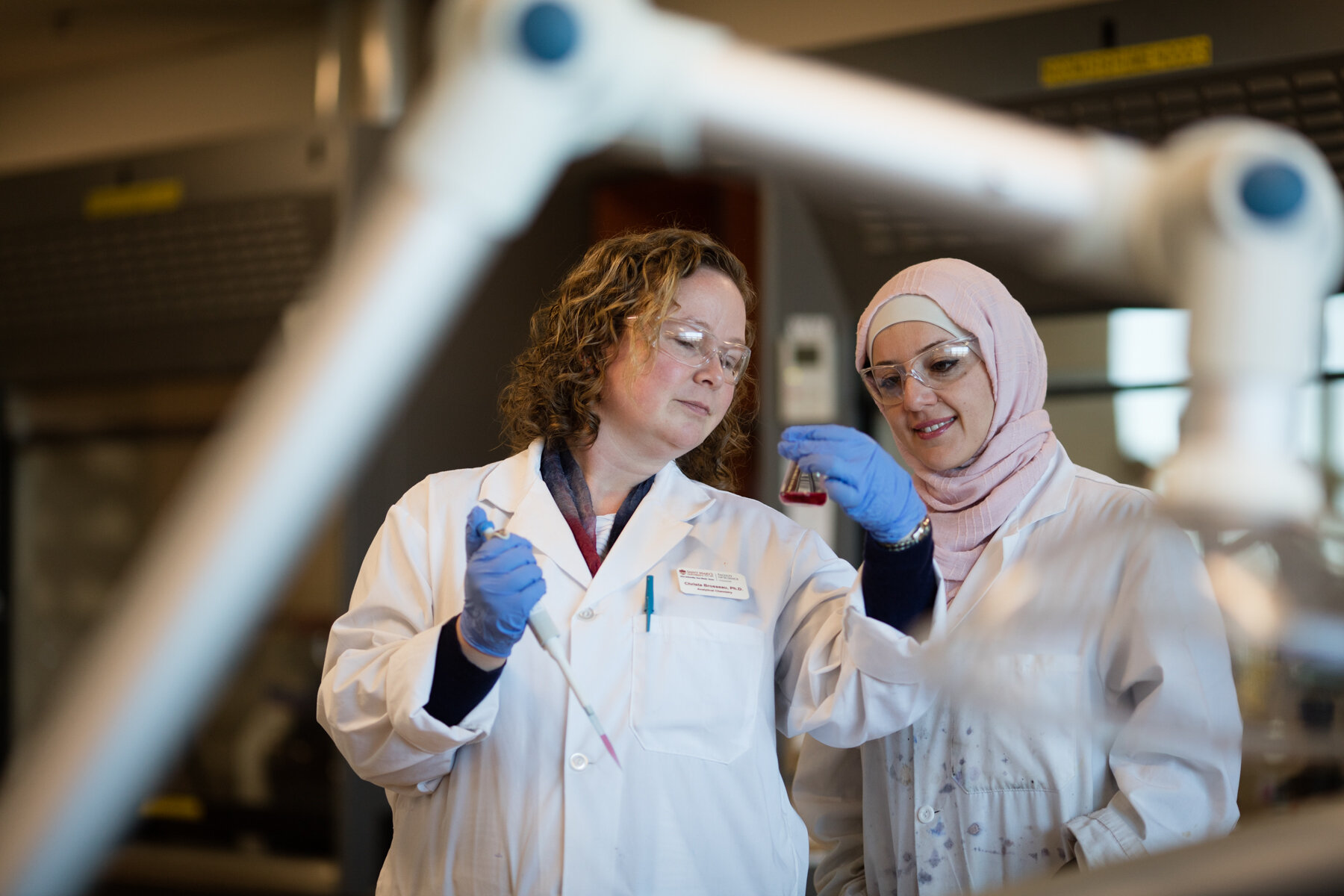When students and faculty at Saint Mary’s were starting the winter 2020 term in January, the plan was for a normal busy university term of classes and labs. Two months later students, faculty and staff were adjusting to the new normal of working and studying from home during a quickly-evolving global pandemic, and the world looked very different by April.
That same month, a small team of Chemistry researchers, including undergraduate students, was quickly formed at Saint Mary’s to start working on a vital contribution to a rapid, point-of-care, Covid-19 test kit created by a startup company in Dartmouth, NS.
Sona Nanotech was creating a new test kit for the direct detection of the virus responsible for Covid-19 and required ready access to a critical precursor. Thanks to a chance conversation about chemistry at a student conference last summer, Sona Nanotech found their expert at Saint Mary’s, namely researcher and professor Dr. Rob Singer.
Dr. Singer has known Dr. Gerry Marangoni, a Scientific Advisory Board member at Sona Nanotech and Professor of Chemistry at St. Francis Xavier University, from previous collaborations. Dr. Marangoni knew that his colleague had the capability to create the critical precursor that Sona Nanotech needed to produce their inexpensive, point-of-care, rapid-response test kit in a matter of minutes.
A partnership was quickly formed between the company and the university, and within days testing and production of this critical material began in a Saint Mary’s lab. The work was also made possible by Springboard Atlantic, which contributed funding towards the research.
Crediting the collaborations that come from working within a small university for the success of this venture, Dr. Singer explained how beneficial it was to work with a local startup and collaborators. “It was so efficient, and most importantly, we were able to get undergraduate students involved right from the start.” he explained. “These students are involved in relevant, potentially world-changing research here at a small university.”
The team at Saint Mary’s, including undergraduate students Jacob Hoare and Olivia Singer, recent alumni Kalei Crowell and Jacob Campbell, and PhD candidate Thomas Steele, have so far created just over 6 kilograms of the critical precursor, and they have the ability to keep producing at this industrial level as needed. “Of course, we were going to help when they asked. Our mentality was that we were going to assist this company as much as, and in any way, we possibly could.” said Dr. Singer.
Sona Nanotech’s test uses its proprietary nanotechnology in a disposable lateral flow test platform to create a new rapid, point-of-care test kit for the direct detection of the virus SARS-CoV-2 that causes Covid-19. It works in a similar way to home pregnancy tests, by identifying the presence of a biological marker, but the technology can also be used to detect a range of viruses and infectious diseases including hepatitis, HIV and Ebola. This method is faster and cheaper than other testing technology, and could be used for in-home testing and by medical staff, and to screen people in large gatherings. Click here to read more.















